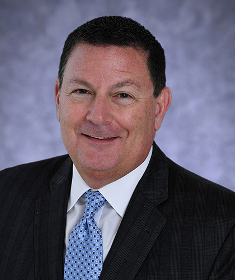Sales Methodology as the Force Multiplier
Taking Salespeople Where They Need to Go

Over several years, the organization had invested significantly on sales enablement staff and technologies to drive performance and productivity. The sales leader introduced a new sales process with improved CRM functionality and integration, sales process training, and worked to improve coordination between Marketing and Sales—but was frustrated by mixed results.
This sales leader’s experience is hardly unique. CSO Insight’s most recent Sales Enablement Study showed that less than a third of organizations said their sales enablement expectations were exceeded or fully met. More than 60 percent said sales enablement met few or some of their expectations.1
The question becomes: Why do so many sales enablement efforts fail to deliver?
The answer: While they put processes, technologies, and tools in place, they overlook the sales methodology that can take them where they want to go.
Sales Process Versus Sales Methodology
Most salespeople consciously (or unconsciously) follow a sales process to facilitate the buy/sell process. While the degree of formality and number of sales process steps varies, most (if not all) B2B sales organizations have clearly delineated sales process stages and associated activities. The sales process specifies the what, or the road map, of moving a deal from prospecting to the close, and, ideally, to repeat business.
On the other hand, sales methodology is the how of selling. An effective sales methodology paves the way for salespeople to:
- Establish strong, productive working relationships with customers
- Discover what matters to customers and why
- Provide solutions for the customer’s top priorities
And, a sales methodology is even more than that. It reflects who the selling organization is as a business—and who the salesperson is as a business partner.
An effective sales methodology addresses both the skill set and mindset to execute each step of the sales process well. They are interdependent.
Let’s use two lenses to explore sales methodology from the salesperson’s point of view: intention and capability.
The Power of Mindset
While people go into sales for different reasons, many see it as a lucrative career with the opportunity for recognition and prestige: “I made President’s Club . . . again!”
While this is justifiably exciting to salespeople, do customers really care about President’s Club?
No! They care about their own business pressures, strategies, and initiatives. A DemandGen study found that nearly two-thirds of customers said that sales teams that demonstrated a strong knowledge of their company and needs was one of their most important selection criteria. Furthermore, a full 62% said that selected vendors provided content that made it easier to build a business case for the purchase.2
The implications for salespeople are obvious. A laser-like focus on what matters most to the customer while offering unique insights about the customer’s industry, business issues, and the selling organization’s experience in addressing similar challenges demonstrates the salesperson’s values and positive intent—their focus on helping the customer succeed. Salespeople with this mindset believe they win only when they help advance the customer’s business so that the customer wins.
That’s where sales methodology comes in. Sales methodology inspires salespeople to truly differentiate both who they are as salespeople and how they work with customers to deliver unique value.
Mindset and Skillset: Force Multipliers
Sales methodology is all about how salespeople work with their customers and do business that’s good for customers and for them. While positive intent should always be the baseline—and unlocks the door to repeat business—sales skills also play a significant role in sales success.
The sales skill set includes the skills, approaches, and techniques salespeople use to engage their customers. Overall, sales capability is the external demonstration of intentions, or mindset, that come from within—it is what customers see and experience. It is the outward expression of inward intent.
It is how salespeople help their customers advance their business. Salesforce’s “State of Sales” study showed that 79% of business buyers say it’s absolutely critical or very important to interact with a salesperson who is a trusted advisor and adds value to their business—not just someone trying to make a sale.3
Unfortunately, salespeople don’t always demonstrate the ability to do so effectively. SiriusDecisions’ “2018 Global Chief Sales Office Study” showed that nearly three-quarters of sales leaders said their salespeople are unable to connect their solutions to customer business issues.4
If sales process is the road map, sales methodology provides an active vision for what the salesperson needs to achieve, where the salesperson should go, and how to provide value at every phase of the sales process.
Furthermore, sales methodology becomes the way salespeople define and execute sales strategy to build a healthy pipeline and improve their win rates. It includes:
- Defining the opportunity and pursuing business that’s good for the customer and the selling organization
- Identifying and engaging all customer stakeholders at the right time and in the right way
- Influencing the decision process and stakeholders
- Determining the competitive landscape and executing competitive moves and countermoves to win
Sales methodology is about the human behind the sales persona and, when executed well, quickly becomes a force multiplier.
1 "The heart of resilient leadership: Responding to COVID-19," Deloitte Insights, https://www2.deloitte.com/us/en/insights/economy/covid-19/heart-of-resilient-leadership-responding-to-covid-19.html
2 “2020 B2B Buyers Survey Report,” DemandGen
3 “26 Sales Statistics That Prove Sales Is Changing,” https://www.salesforce.com/blog/2017/11/15-sales-statistics.html
4 “2018 Global Chief Sales Office Study,” SiriusDecisions
To learn more, contact Wilson Learning at 1.800.328.7937 or complete the online form.







 Please complete this form to download Sales Methodology as the Force Multiplier | Taking Salespeople Where They Need to Go.
Please complete this form to download Sales Methodology as the Force Multiplier | Taking Salespeople Where They Need to Go.



